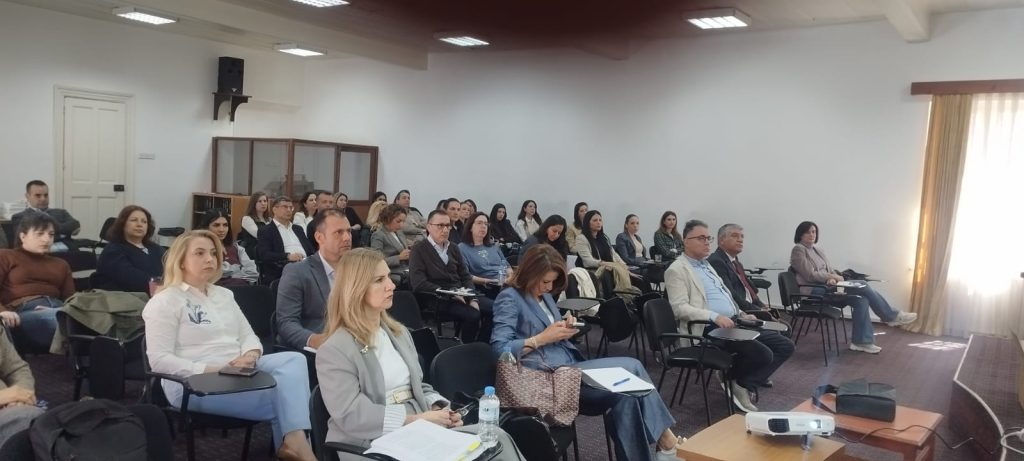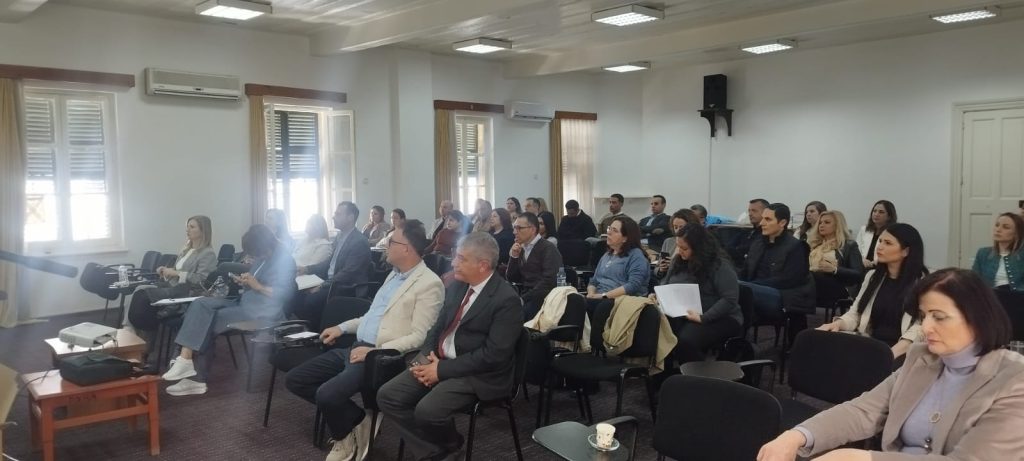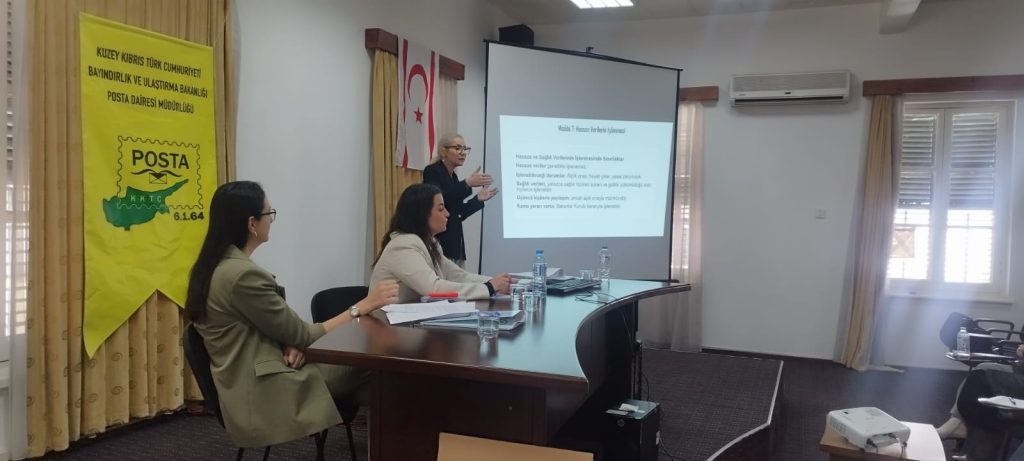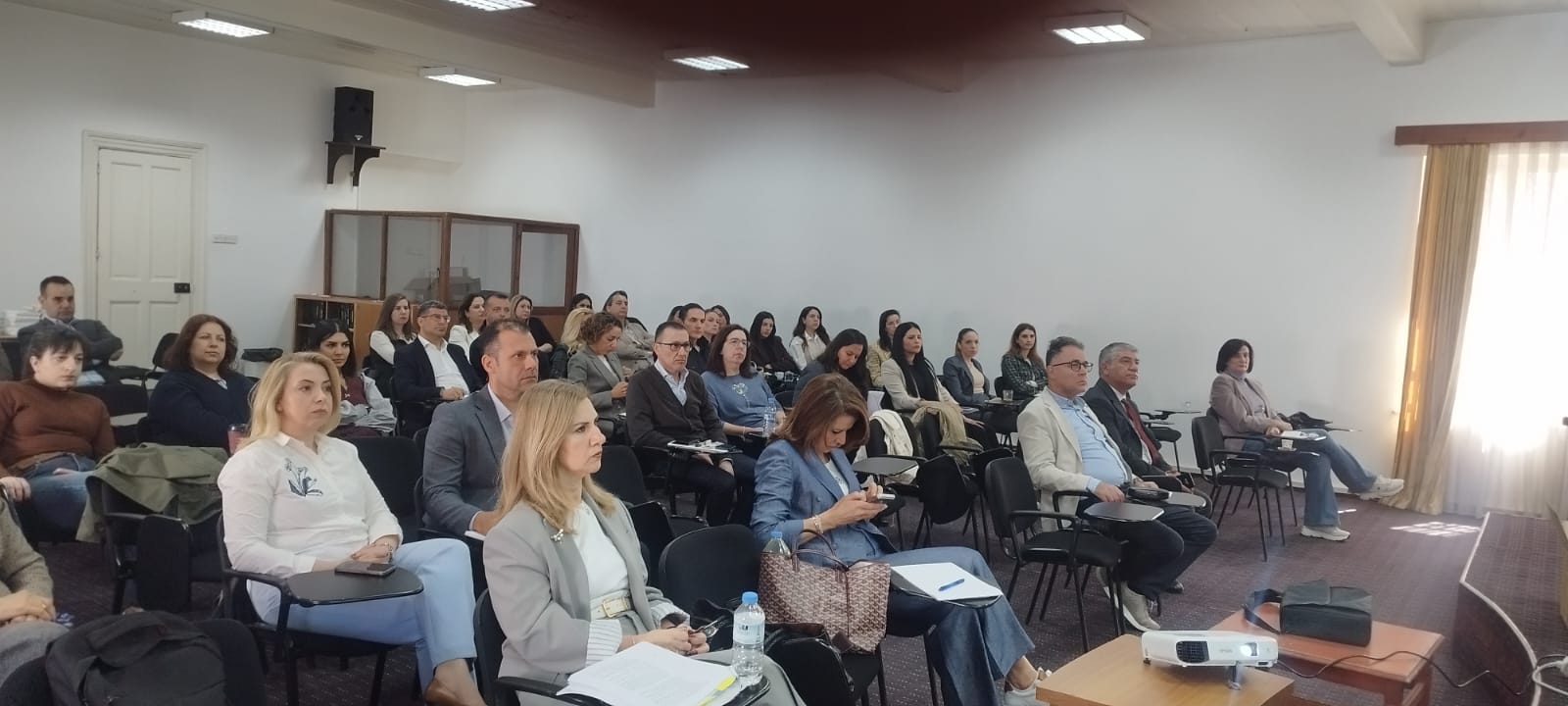A training seminar for judges on the right to protection of personal data was held in the Turkish Republic of Northern Cyprus (TRNC). In the training seminar, which was organised by the Supreme Court and whose program was prepared by Eastern Mediterranean University Faculty of Law faculty member Assoc. Prof. Dr. Demet Çelik Ulusoy; Assist. Assoc. Prof. Dr. Emine Koçano Rodoslu and Assist. Assist. Prof. Dr. Eda Gülsüm Karasaç Ramazan successfully provided training.
The seminar started with the opening speech of the President of the Supreme Court, Mr Bertan ÖZERDAĞ, and the President of the TRNC Personal Data Protection Board, Assist. Assoc. Prof. Dr. Kaan KUTLAY gave general information about the work of the Board.
Within the scope of the event, the first training seminar was given by Assoc. Prof. Dr. ÇELİK ULUSOY, who has comparative books and publications on Personal Data Protection Law in TRNC. In his training presentations, Mr. Çelik Ulusoy outlined the definitions of personal data and sensitive data in the context of the types of personal data processed in judicial processes, the definition of personal data processing and the basic principles of processing, the legal basis of data processing, other rights of personal data owners, the obligations of controllers and data processors.
The afternoon training presentation of the Seminar, where discussions were held on legal solutions to the problems experienced in practice, was carried out by EMU Faculty of Law lecturer Asst. Assoc. Prof. Emine KOÇANO RODOSLU. Asst. Assoc. Prof. Dr. KOÇANO RODOSLU made evaluations on how the right to protection of personal data should be handled in the context of private law and the legal remedies that can be applied against legal violations. The training seminar on the evaluation of the protection of personal data as a tort in the context of violation of personal rights was completed with the active participation of the judges.
Later in the seminar, EMU Faculty of Law Lect. Assist. Prof. Dr. Eda Gülsüm KARASAÇ RAMAZAN made a presentation on data anonymization techniques in court decisions and the regulation of public documents. Dr. KARASAÇ RAMAZAN also explained concrete recommendations such as strengthening the security and access controls of the files processed and protected in the judiciary, increasing data protection standards in electronic systems with examples from comparative law. With the Practical Studies Presented to Judges, concrete examples of the use of personal data in judicial processes, European Court of Human Rights judgements, EU regulations and Court of Justice decisions were discussed. This seminar is of great importance in terms of the current approaches of the judicial bodies in the TRNC on the protection of personal data and the interest and contribution of judges to the personal data processed in judicial activities and the integration of personal data protection into judicial processes.





